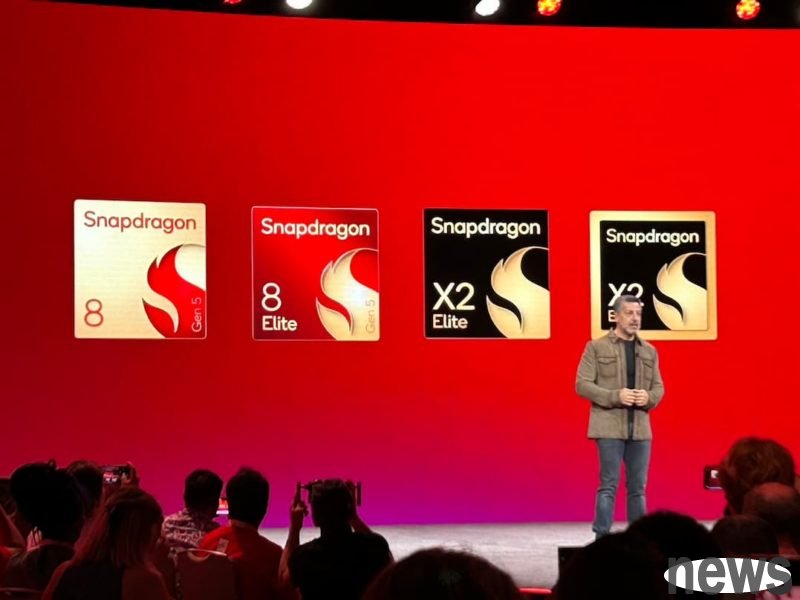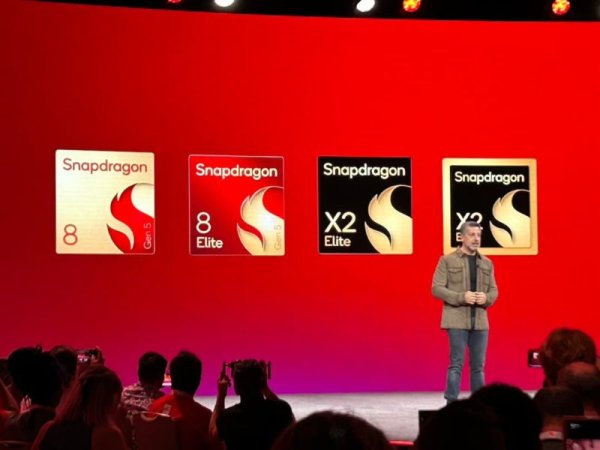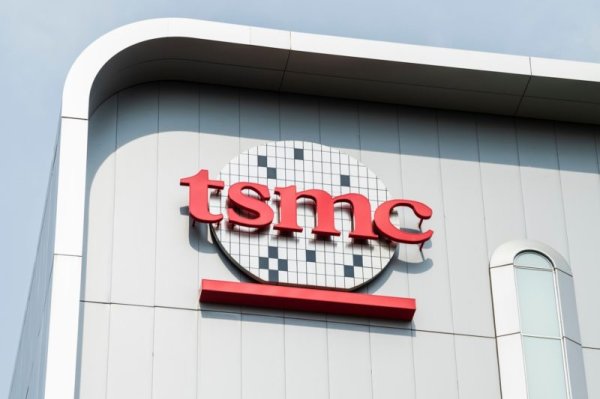The gross profit is only 4%, but you still have to grab it! Qualcomm’s AI PC game: a tough battle that must be fought to fill Apple’s gap

"The profit of a computer is actually not high, only 4%," said Don McGuire, chief marketing officer of Qualcomm. However, in this Red Sea market with low gross profit and fierce competition, Qualcomm, the mobile phone chip overlord, has devoted all its efforts in recent years.
Because for them, this is not just a business, but also a game that they must participate in.
According to research firm Counterpoint, Qualcomm is still the global leader in Android flagship mobile phone chips, with a market share of nearly 60% last year. Although he is firmly in the lead, CEO Cristiano Amon faces an unavoidable crisis.
In recent years, the growth of the mobile phone market has been weak, and Qualcomm's major customers Xiaomi and Samsung have also invested in self-developed chips; even more fatally, there may be a big hole in revenue in two years: Apple's orders, which used to account for about 17% of revenue and about US$6 billion, will completely disappear in 2027!
Not only customers are beginning to develop their own chips Apple orders are no longer guaranteed after two yearsApple has always been a major customer of Qualcomm’s mobile modem chips. However, after Apple acquired Intel’s mobile modem business in 2019, it actively conducted its own research and used its own chips completely two years later.
Various warnings have made Qualcomm full of crisis awareness. In recent years, it has actively deployed in other terminals such as the Internet of Things and automobiles. However, although these products have begun to contribute to revenue, the speed is relatively slow. For example, automotive chips contributed approximately US$980 million in revenue in the latest quarter, accounting for only about 9% of this quarter's revenue. Although it is a good business in the long term, it cannot see returns in the short term.
Therefore, they focus on an area full of potential and rapidly updating—AI PC. During the conference, Anmeng expressed confidence: "Qualcomm's computer chip platform Snapdragon X Elite is the first choice for AI PCs of various computer manufacturers, and AI will become a powerful driving force."
Although this announcement is extremely ambitious, the road ahead will not be easy because the market has already been firmly controlled by the existing rules of the game.
The computer market has been dominated by the "Wintel" combination of Intel and Microsoft for many years, and it still accounts for 70% of the market. As a latecomer, Qualcomm broke through with Arm, a chip architecture that is different from Intel and emphasizes lower energy consumption. However, this track has long been occupied by Apple. In the past few years, after self-developed Arm architecture chips were used in Mac notebooks, it successfully attracted a large number of consumers to jump into the arms of Apple with the slogan of "use it all day without charging", and its market share rose to 9.5%.
And the opponent’s more ruthless killing move is about to come. There are rumors in the market that Apple may launch an affordable model with NT$20,000 next year. I am afraid that more consumers will turn to Apple. Lin Xinliang, senior chief analyst at Omdia, pointed out that Apple's ecological ecosystem is extremely sticky. Once a user enters the Apple system and all devices are tied in, it is almost impossible to turn back.
No more difficult technical language Rely on a simple sentence to impress Generation ZOn the one hand, competitors are likely to introduce low-priced models to bring more consumers into the ecosystem; on the other hand, there will be a revenue gap of close to 20% to make up in two years. Before the cliff approaches, Qualcomm must first force itself to change its thinking. In order to seize time, Qualcomm went all out. In just 15 months, it successively promoted high-end, mid-range and low-end products, and claimed to achieve the target of 12% of the computer market share in 2029, surpassing Apple.
However, since shipment last year, Qualcomm’s computer market share is still less than 3%. McGuire admitted that last year's strategy of focusing on Microsoft's AI assistant Copilot was a mistake. "We found that AI is too abstract for ordinary consumers. It must be something more practical to impress people."
This giant company, which used to be in constant contact with mobile phone brands, car manufacturers and other developers, has to relearn how to understand consumers and change its marketing strategies.
In the past mobile phone era, Qualcomm often talked about chip performance, power consumption and computing power, which was quite far away from the average person. But now, young Alpha generation students no longer talk about difficult technical specifications, but instead use straightforward slogans: "No charger, no problem", appealing for battery life in the most direct language.
For another example, they target “pioneers” who are curious about new technologies. McGuire described: "Most of these people are from Generation Z. They consider themselves creators and are highly active on social platforms." To capture them, Qualcomm no longer just talks about rigid performance, but instead brings out cooperation cases that are more relevant to life. For example, it supports Yamaha music creation software and cooperates with gaming giant Razer on e-sports peripherals. People can directly feel that the Qualcomm computer ecosystem can support creative needs.
Even the computer stickers have been changed to more eye-catching gold edges to highlight the sense of luxury. Every detail adjustment is just to get closer to consumers.
Qualcomm has also established a "Go to Market" team of 100 people to focus on marketing. Such teams already exist at Intel and AMD, but for Qualcomm, which is accustomed to dealing with enterprises, the marketing DNA of the terminal market must still be started from scratch: talents, tools, and even market language must be learned and used immediately.
McGuire admitted frankly that this is a learning journey, and they are still exploring how to create their own market style.
In the era of mobile phones, Qualcomm can firmly occupy the leading position by relying on its technological advantages; but in the computer market, technology alone is far from enough. The real test is whether this company with a strong engineering culture can quickly learn to reshape its relationship with the world in the language of consumers. Transformation has never been just about the expansion of product lines, but the practice of transforming one's mind.
Further reading: Shin Kong Mitsukoshi’s Taichung store reopens, here’s a surprising number: Why haven’t any customers left after being closed for 7 months? Spending only 1 hour after get off work every day, he figured out the formula for creating a second income



